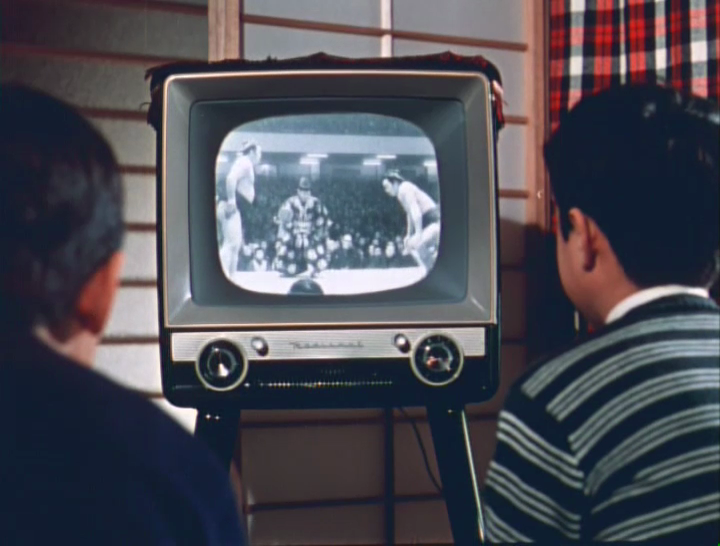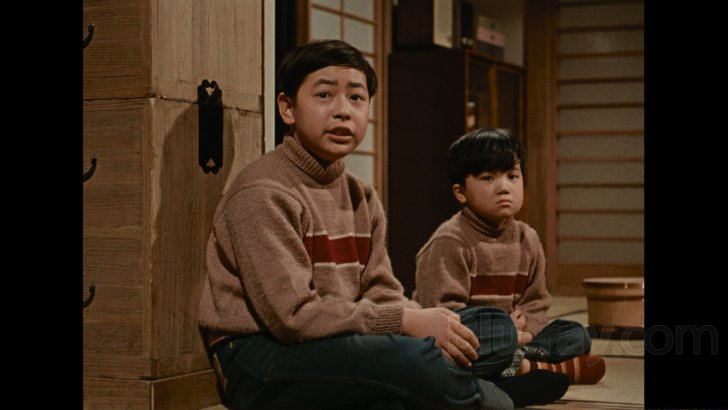Phatic Pharting


Two things about all this are worth noting. The first is that the movie is set in a suburb of Tokyo in which people live in very close proximity to one another, but with a domestic architecture that largely imitates that of traditional Japanese houses. Which is to say that people are going in and out of one another’s homes constantly, often sliding open doors without knocking, and in so doing opening the viewer’s world to people sitting in a house on the other side of the narrow walkway that separates one domicile from another. The fact that people live in such close proximity puts them in one another’s lives on a constant basis; but the fact that there are indeed doors separating one house from another means that they often do not know precisely what is going on in their neighbors’ houses and are led to make unwarranted assumptions. Maybe we could see this as a kind of anticipatory comment on social media: See Ian Bogost’s essay “People Aren’t Meant to Talk This Much.”
The second point is this: there’s a lot of farting in this movie. All of the local boys play a game in which one presses another’s forehead, at which point the other is expected to generate a responding fart. “You’re no good,” says one boy to another who is unable to fart on command. (He tries so hard that he soils himself; his mother is frustrated at having to replace his underwear.) In another scene, a man dressing before work keeps farting, and in response to each fart his wife leans into the doorway to inquire what he needs.
The obvious implication of these two points – the boys’ perception of the chattering of adults and the persistence of farting – is that much human communication is actually non-substantive, non-informational – phatic is the term of art. Good Morning is a very funny but also a profound exposure of our need for communication, and the ways that communication can become miscommunication. The impulse to connect is, alas, a primary source of conflict — something Mark Zuckerberg will never really understand. Good Morning is a classic, one of Ozu’s few neglected masterpieces.